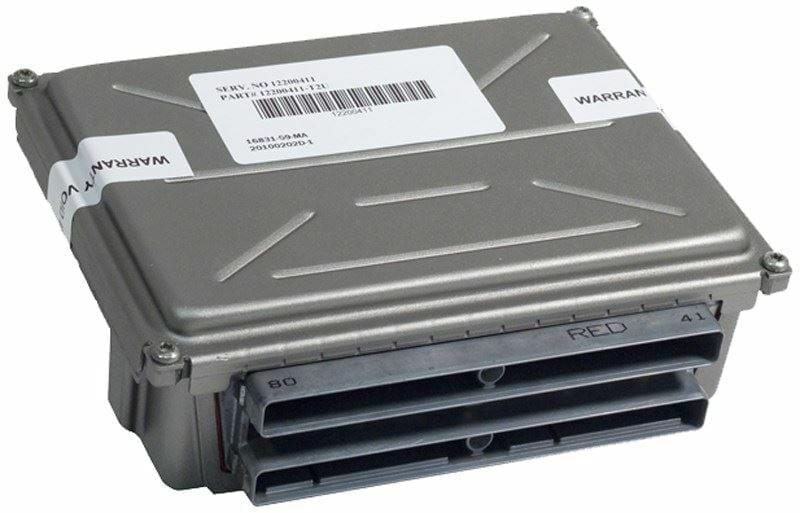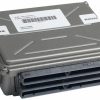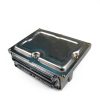Bring Your Dependable Van Back to Life
There’s nothing more frustrating than when your trusted Chevrolet Astro or GMC Safari starts acting up. The vehicle you rely on for work, family, or adventure suddenly becomes a source of stress—stalling at intersections, refusing to start, or flashing that persistent check engine light. These aren’t just annoyances; they’re signs that the brain of your engine, the Powertrain Control Module (PCM), may be failing. This isn’t just a part; it’s the key to restoring the reliability and peace of mind you deserve from your vehicle.
We offer a straightforward, effective solution. This replacement PCM is meticulously programmed to your vehicle’s specific Vehicle Identification Number (VIN) with the latest software updates from GM. This critical step means it arrives at your door ready for a simple, direct installation, bypassing the need for an expensive trip to the dealership for programming.
Warning Signs and How to Overcome Them
A failing PCM can manifest in numerous ways, often mimicking other component failures. If you’re experiencing any of the following, this module is the definitive solution:
- ✔ No-Start or Intermittent Stalling: The engine cranks but won’t turn over, or it shuts off unexpectedly while driving.
- ✔ Check Engine Light with Specific Codes: Common trouble codes like P0601 (Internal Control Module Memory Check Sum Error) or P0606 (PCM Processor Fault) point directly to a faulty computer.
- ✔ Poor Engine Performance: Noticeable loss of power, reduced fuel economy, and rough idling can all be traced back to incorrect signals from a failing module.
- ✔ Erratic Transmission Shifting: The PCM also controls transmission functions, so harsh or delayed shifts can be a clear symptom.
- ✔ Communication Errors: If your diagnostic scan tool cannot communicate with the computer, it’s a strong indicator the module itself has failed.
An Expert’s Note: The Small Business Lifeline
“I once worked with a carpenter who depended on his ’01 Savana van. It started stalling randomly, making him late for jobs and costing him money. He’d replaced sensors and fuel system parts to no avail. The issue was a failing PCM. We sent him a pre-programmed unit, he swapped it out in his driveway in under 30 minutes, and his van was back to being the reliable workhorse he needed. It wasn’t just about fixing a vehicle; it was about restoring his livelihood and confidence.”- Veteran ASE Certified Technician
Guided Installation to Restore Peace of Mind
You don’t need to be a master mechanic to complete this job. Because we handle the programming, the physical swap is refreshingly simple. Here’s a general guide to get you started:
- Safety First: Always disconnect the negative terminal from your vehicle’s battery before starting any electrical work. This prevents any potential damage to the new module or the vehicle’s systems.
- Locate the Old PCM: On most compatible models like the Astro and Safari, the PCM is located in the engine bay, typically on the driver’s side near the battery, housed in a black plastic bracket.
- Disconnect the Connectors: Carefully unlatch and remove the wiring harness connectors from the old module. They are color-coded and uniquely shaped, so there’s no risk of mixing them up.
- Swap the Modules: Unbolt the old PCM from its mounting bracket and secure the new one in its place. The fit will be identical.
- Reconnect and Power Up: Firmly re-seat the wiring harnesses onto your new 2000-2002 Astro PCM. Reconnect the negative battery terminal. The vehicle is now ready to start.
- Final Check: Start the engine and let it idle for a few minutes. The check engine light should be off, and the engine should run smoothly. In some cases, a security relearn procedure may be necessary, which can typically be done without special tools.
Tailored Fit for Your GM Truck or Van
This module is a direct fit for a wide range of GM vehicles. Please verify your part number (this module is compatible with 12200411, 12201281, 12576160, and 52369718) and model from the list below to ensure perfect compatibility.
- Chevrolet: Astro, Avalanche, Blazer, Camaro, Silverado, S10, Suburban, Tahoe, Express Van
- GMC: Safari, Sierra, Jimmy, Sonoma, Yukon, Savana Van
- Cadillac: Escalade, Escalade EXT
- Oldsmobile: Bravada
- Pontiac: Firebird
- Corvette: (2001-2003)
Note: Please refer to the detailed fitment list provided in the product details for specific year ranges and engine options. Using a properly programmed 2000-2002 Astro PCM is essential for correct vehicle operation.
Frequently Asked Questions
Do I need to have this programmed by a dealer?
No. The main benefit of our service is that we program the module to your vehicle’s VIN before we ship it. This means it arrives ready to install, saving you the time, cost, and hassle of a dealership visit.
How do I provide my vehicle’s VIN?
After you complete your purchase, you will be prompted to provide your 17-digit VIN. You can also send it to us through the messaging system. We cannot ship your part until we receive the VIN, as the programming is specific to your exact vehicle.
Will this fix my transmission shifting problems?
In many cases, yes. The Powertrain Control Module (PCM) controls both engine and transmission functions. If the module is faulty, it can send incorrect signals to the transmission, causing harsh shifting, slipping, or delayed engagement. A new, correctly programmed PCM often resolves these issues.
What is a security relearn, and will I need to do one?
A security relearn, or anti-theft relearn, syncs the new PCM with your vehicle’s anti-theft system. For most of these GM vehicles, the process is simple and requires only the ignition key. It typically involves turning the key to the ‘ON’ position for 10-15 minutes, then ‘OFF’, and repeating this cycle three times. Instructions are widely available online for your specific model.
What is the difference between an ECM, ECU, and PCM?
The terms are often used interchangeably. ECM (Engine Control Module) or ECU (Engine Control Unit) typically just controls engine functions. A PCM (Powertrain Control Module) is a more integrated unit that manages both the engine and the automatic transmission, which is what this part is.


